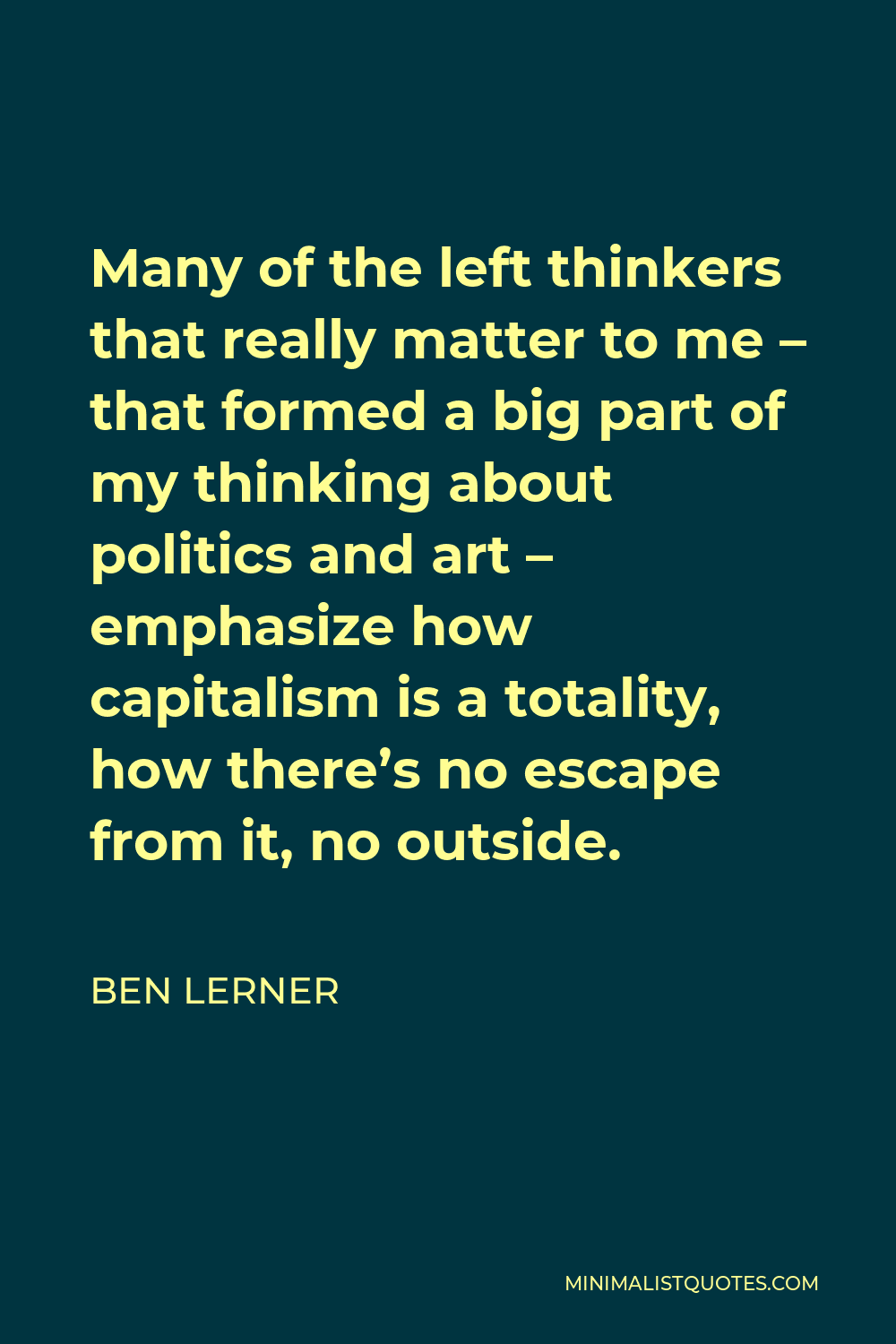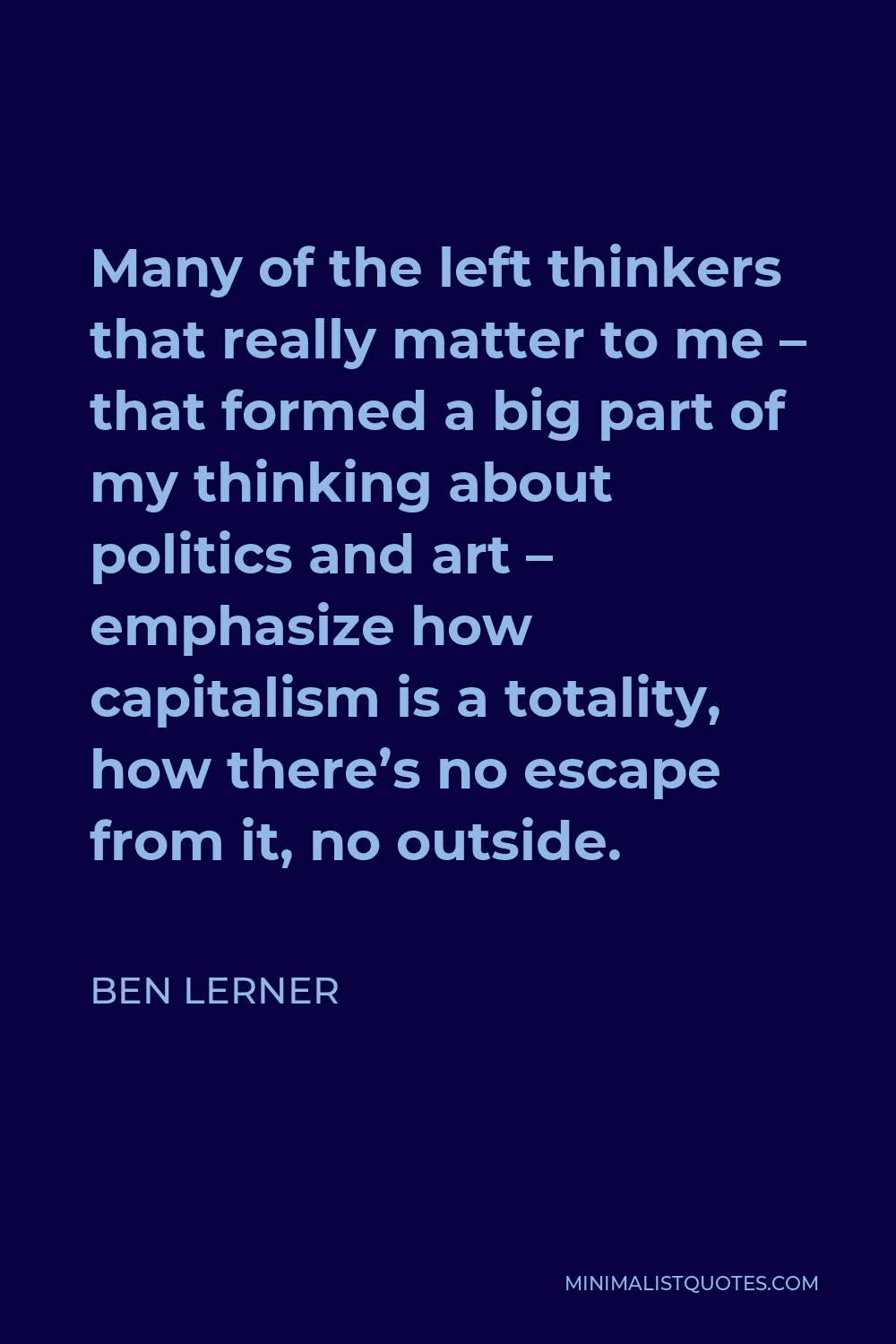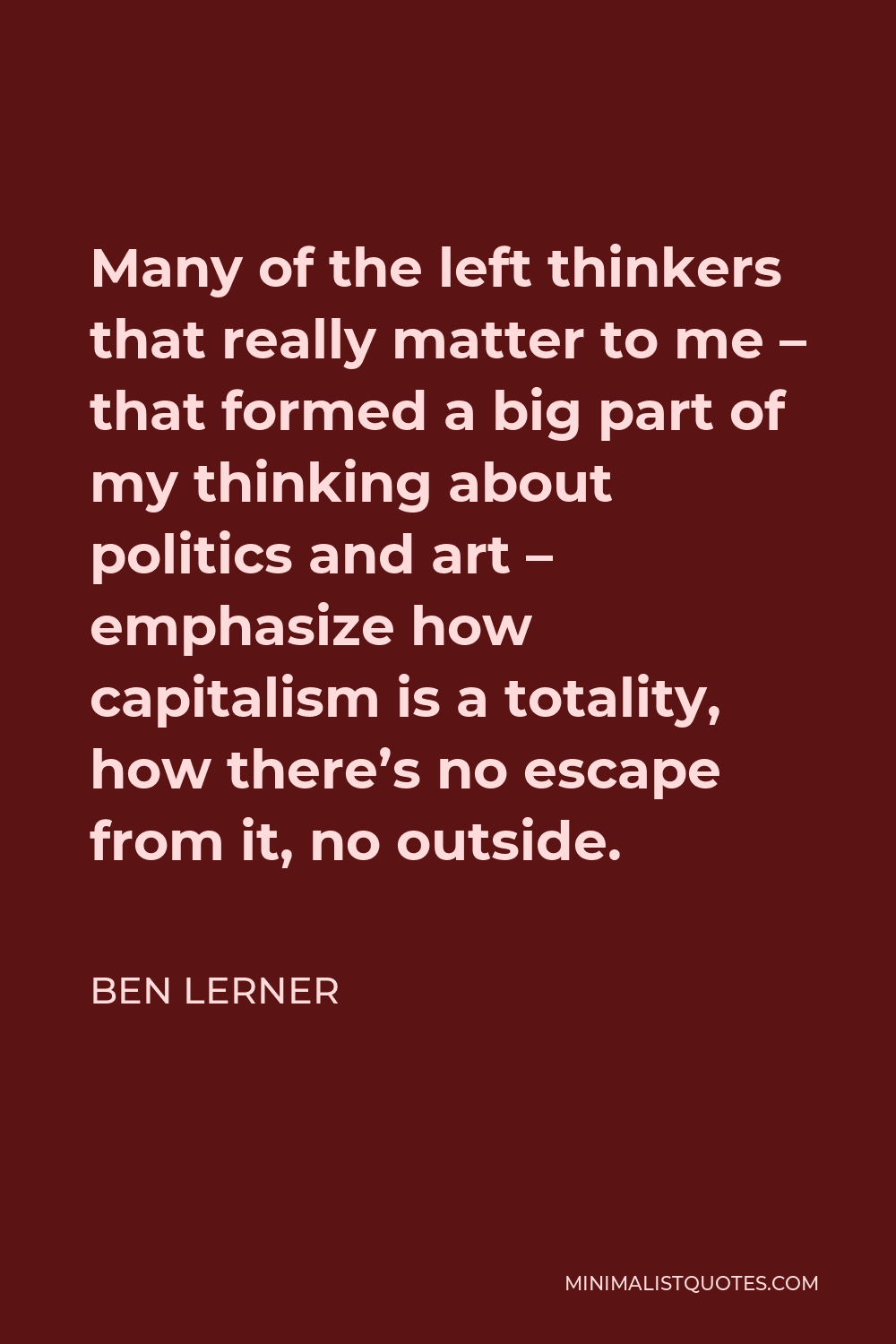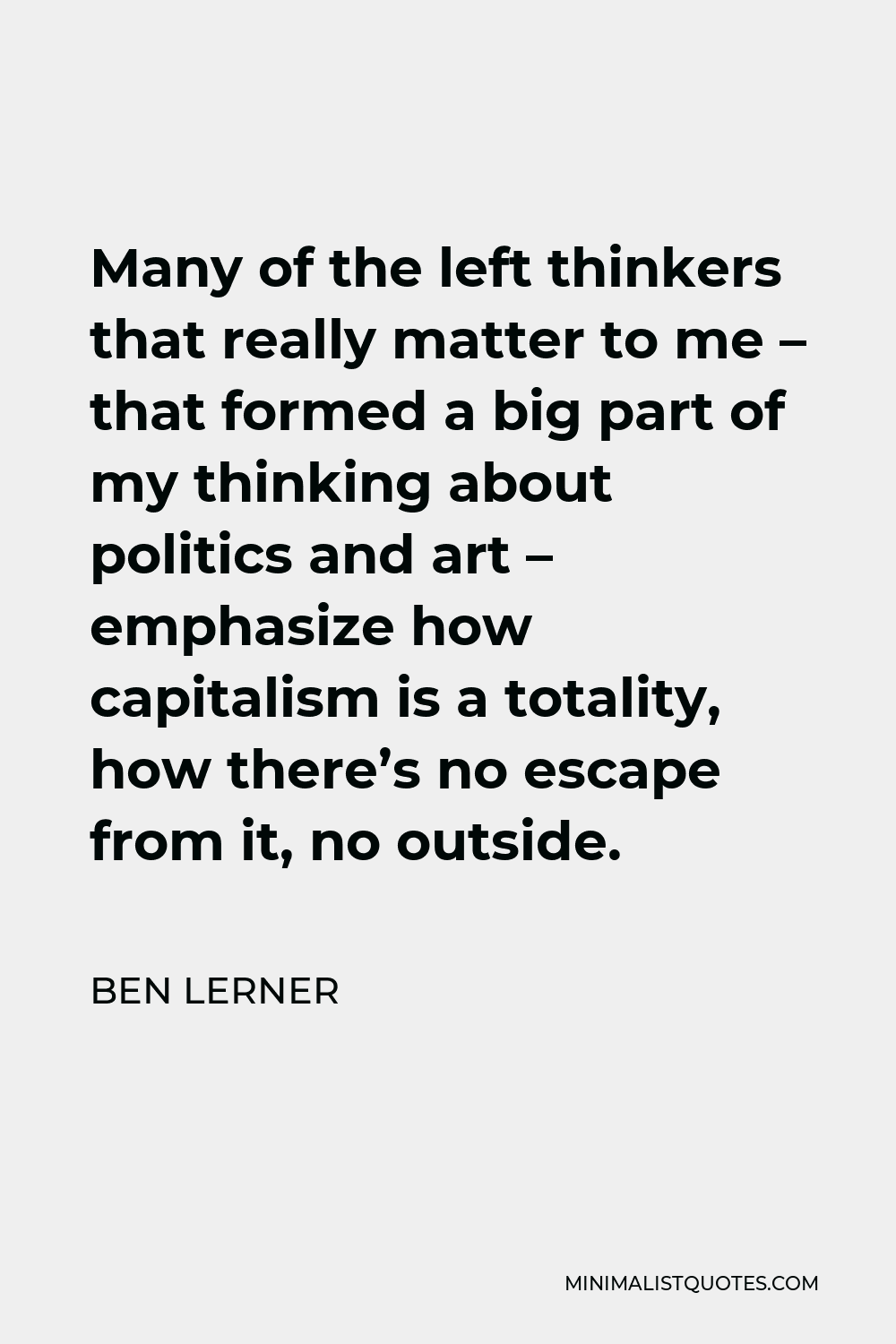I’m defending fiction as a human capacity more than as a popular or dying literary genre.
BEN LERNERMany of the left thinkers that really matter to me – that formed a big part of my thinking about politics and art – emphasize how capitalism is a totality, how there’s no escape from it, no outside.
More Ben Lerner Quotes
-






-






I guess when I’m frightened or in pain or maybe very bored I’ve tried to hold myself together by imposing a narrative order on the experience as it happens.
BEN LERNER -






If I was a poet, I had become one because poetry, more intensely than any other practice, could not evade its anachronism and marginality and so constituted a kind of acknowledgment of my own preposterousness, admitting my bad faith in good faith, so to speak.
BEN LERNER -






The scare quotes burn off like fog.
BEN LERNER -





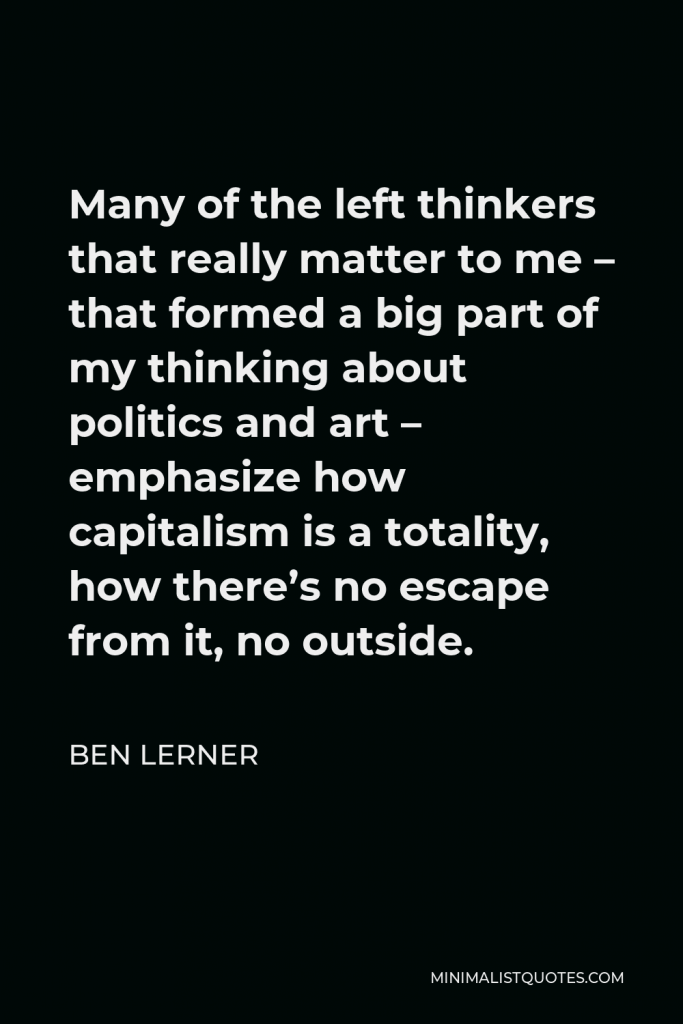

Many of the left thinkers that really matter to me – that formed a big part of my thinking about politics and art – emphasize how capitalism is a totality, how there’s no escape from it, no outside.
BEN LERNER -






Art has to offer something other than stylized despair.
BEN LERNER -







I have no interest in artists who are purely affirmative, who’ve made a commercialized fetish of the culture’s stupidity.
BEN LERNER -







Most of us start from that position of irony now and what I wanted to do – really felt like I had to do if I was going to write another novel – was move towards something like sincerity.
BEN LERNER -





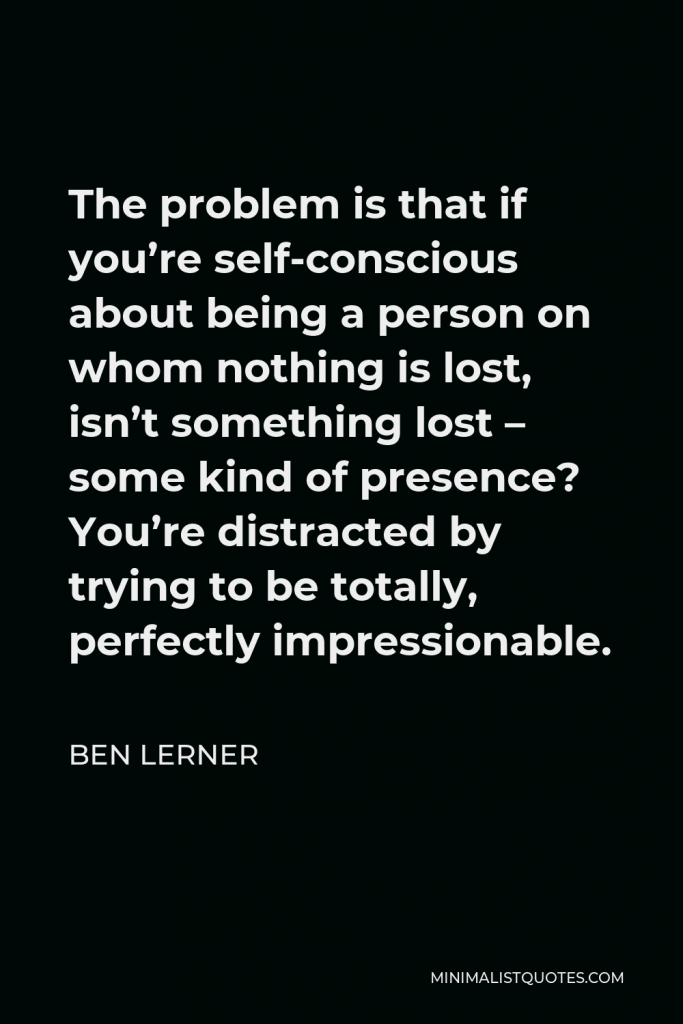

The problem is that if you’re self-conscious about being a person on whom nothing is lost, isn’t something lost – some kind of presence? You’re distracted by trying to be totally, perfectly impressionable.
BEN LERNER -






Are there are fireflies on the West Coast? I never saw any when I lived in California.
BEN LERNER -







Every relationship can feel saturated by market logic or at best purchased at the price of the immiseration of others.
BEN LERNER -





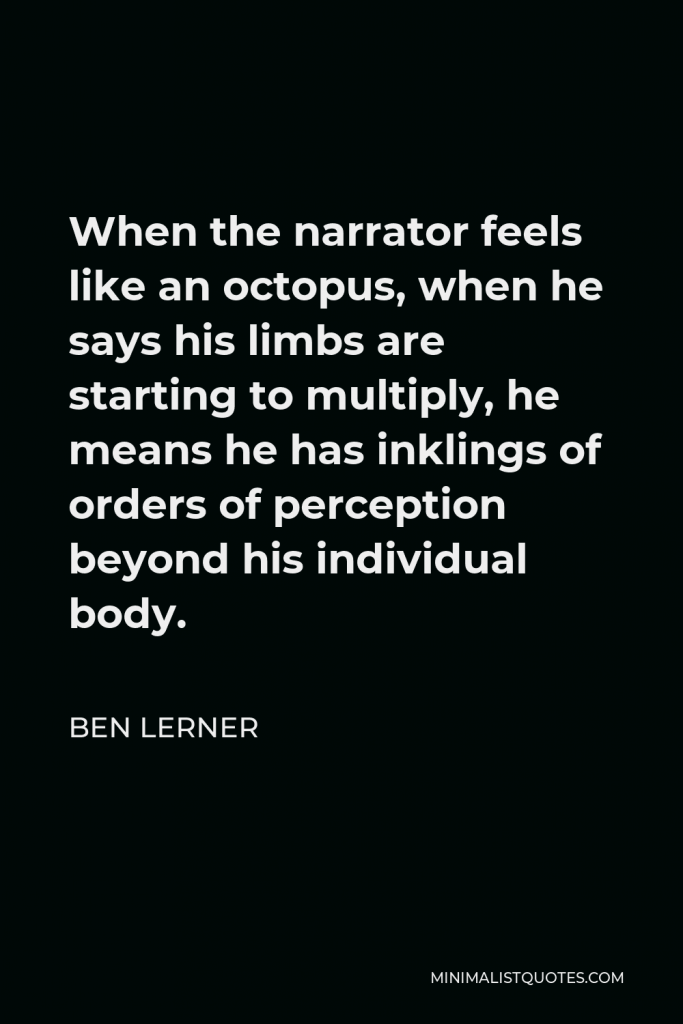

When the narrator feels like an octopus, when he says his limbs are starting to multiply, he means he has inklings of orders of perception beyond his individual body.
BEN LERNER -






The transpersonal is more awe-inspiring, more exciting than the thing we confuse it for.
BEN LERNER -







Experiments with the “as if” of fiction are often more lively in poetry and criticism and other modes of writing than in weak short stories or novels.
BEN LERNER -





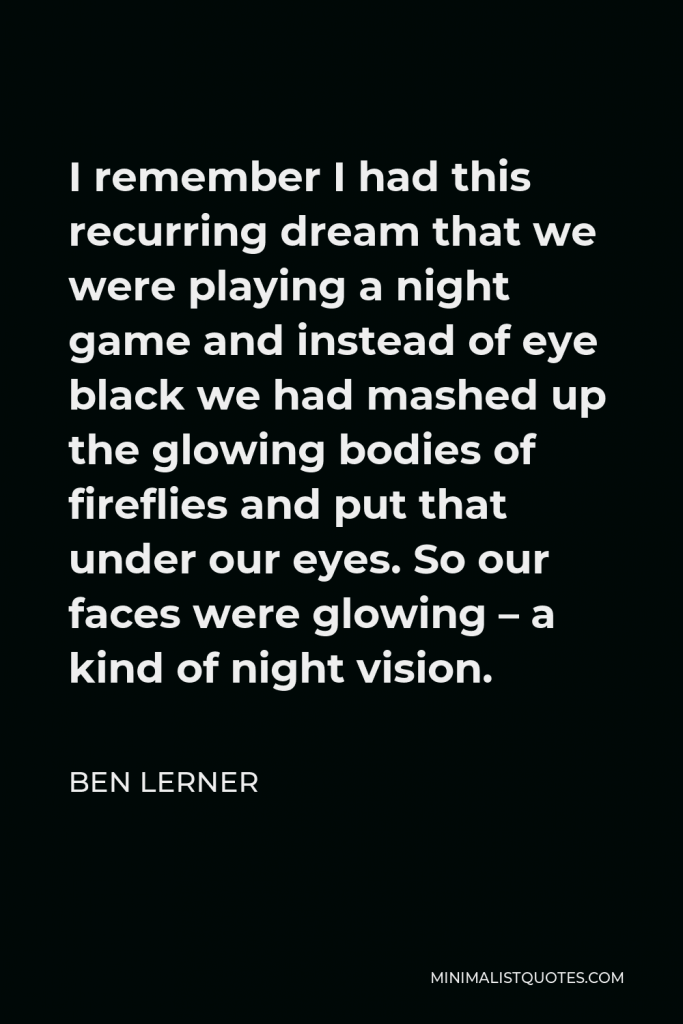

I remember I had this recurring dream that we were playing a night game and instead of eye black we had mashed up the glowing bodies of fireflies and put that under our eyes. So our faces were glowing – a kind of night vision.
BEN LERNER -






I wasn’t aware I’d write the novel when I wrote the New Yorker story either. And the narration of their construction in 10:04 is fiction, however flickering.
BEN LERNER

